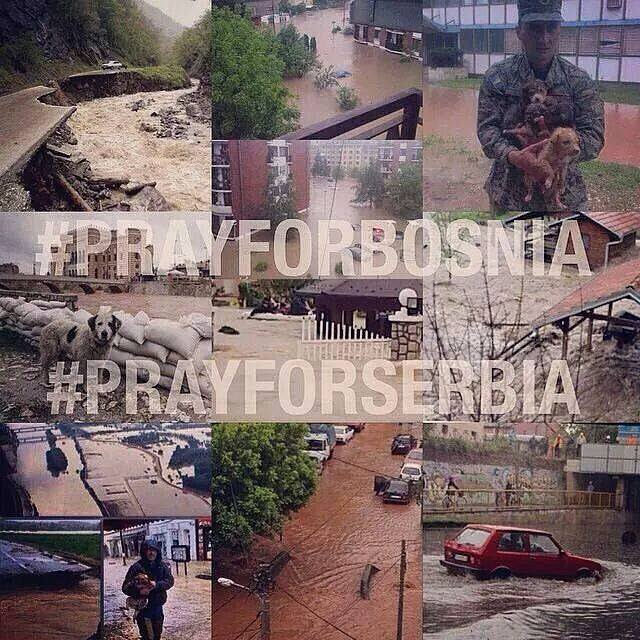Please support our coverage of democratic movements and become a monthly supporter of rabble.ca.
Disastrous floods ravaged Bosnia only two weeks ago. It took cities, villages and everything that was alive and had no chance of escaping such a monstrous pile of water, debris and rain. It looked like the entire atmosphere was against us and was seeking to obliterate us.
The thought of salvation was narrowly bright. This was second time the people of Bosnia had to experience something as perilous as the gory war almost two decades ago. The floods came like insatiable beasts who were determined to devour everything — we and our entire infrastructure violently chewed in its mouth.
With their meager defenses, Bosnia’s small communities were hit hardest, especially in the areas surrounded by rivers. When the water wound up in the small municipality of Odžak — a plain area in the North crossed by two large rivers, Sava and Bosna — we were stranded and alone in our fight.
We had no means for handling the power of the water, no way of corresponding so as to receive help. We were cut off from others as the two rivers were cataclysmically plunging in with great velocity, along with the water from the rapidly harrowed places in the higher parts of country, which had been hit first.
The long-term consequences are bleak in this place of frail budgetary and industrial infrastructures. Our plight initially received no media coverage, and the situation was mostly in hands of locals and some scarce help from a rescuing team from Croatia. Without anyone to blame, news simply travelled too late.
Once the cry was heard, everything had become one big lake.
In my village, Prud, located along two rivers, we felt like cats in a bag that was about to be thrown into a river to drown. We were minuscule before this ancient force. Ground was melting away like ice, and armies of debris took us down.
Then the water conquered other villages: Zorice, Vojskova, Dubica, Novo Selo, Osječak, Ada and Svilaj. It hit the neighboring city of Bosanski Šamac in the Republic Of Srpska.
All of us were refugees within hours — thousands of people now homeless, sick and socially endangered. After a hectic evacuation, we were embraced and given improvised shelters by the kind people of Odžak, and those in nearby towns that had not been ruined by the storms.
We began to count the human casualties. The majority of the wildlife and domestic animals were drowned. The hospitals were full and staff and supplies insufficient. After three days, Odžak began to get outside help as news slowly spread.
Due to the fact that the Posavina region (comprising Odžak and Orašje) is an area of rivers, animals and forest, there is a great risk that deadly diseases could reach epidemic proportions, given the smothered animals, insects and high temperatures. Most of the water is still there.
People are eager to return to their homes, yet the water destroyed dams, bridges, roads, electricity and houses. Resuming normal life seems impossible.
The people of Bosnia have once again suffered a collective psychological shock, and many of us are simply too old to begin to build anew without a strong system to reach our hands to.
This piece appeared in The Believer and is reprinted with permission.
Željko Paradžik was born in September 1986 in Gradačac, Bosnia. He is a graduated Administrative Lawyer, but currently pursuing a career as freelance translator/interpreter and writer in English. He also writes, paints and teaches English. He has published some poetry in “Posavski književni Zbornik.” He is a philantrophist and love animals, and carries respect for all human beings and is engaged in volunteering and helping others.
rabble extends a special thanks to Sheila Heti for this piece as well.
Photo: flickr/SrdjanRadovic99



